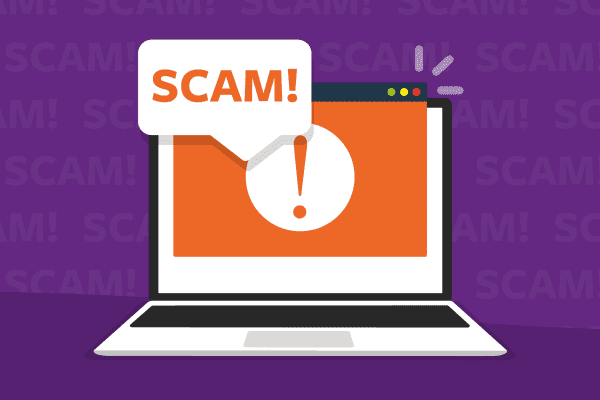While people stay in all day the scammers come out to play

Filters
Results
Dear Sir and/or Madam,
My name is Sir Richard Wellington, Knight of the Round Table. I am writing to inform you that as the last surviving heir of the late King Arthur Pendragon, you are entitled to the inheritance of the treasure of Camelot, amounting to approximately 3.2 Trillion Great British Pounds. Having newly-arrived to this century via portal, I am still familiarising myself with modern contrivances such as electronic currency centralised wealth depositories. As a result, I have a proposal by the which I believe we may assist each other. If you would kindly send me your credentials for a so-called “online banking account” including the username, password, and name of first pet, I will, in turn, send you the treasure that is rightfully yours via carrier pigeon. The Legendary Wealth of Camelot awaits you.
Best Regards,
Richard Wellington, Sir Knight of Camelot
If only all scams were that easy to spot. Some scammers target large groups of people in the hopes of picking up one or two unsuspecting people. They don’t bother wasting time with spelling, grammar, or reasonable requests. Other scams are more intricate, and can even make the most cynical among us do a double-take before noticing that something doesn’t feel quite right.
Whenever there is a major event, there will be people trying to profit off it. And COVID-19 is no exception. In the UK, scammers have already gotten away with over 1.5 million pounds. And some of these are in NZ too. With the country on lockdown in Level 4 alert, there are some scams in particular that you should know about to stay vigilant in these tough times and not have to endure any more hardships from people trying to profit from it.
The Bad Bank Account Scam
This one is dangerous because it looks official. If you get an email from your bank asking for details, you should always be wary. They’re the ones that created it after all, so why would they ask their customers to provide that information?
It’s not so easy to think about all of that when you’re presented with an email with the bank’s logo saying there’s an issue with your account though. The links in the email will take you to an official-looking but fake site, and once you enter your credentials, you’ll get a message confirming that your account is safe–safe in the hands of a scammer, that is.
With events like COVID-19, you might see more specific wording in your bank scam emails. The bank might reference that certain policies are changing due to the virus or that your account will need to be migrated or in danger of closing. They may also reference safety measures via a link that you click–which will give your computer a virus.
If you ever do decide to change your password or update your details, go your bank’s website from a browser, not by clicking the links in the email. (Actually, this is good advice for any time you update your info, not just with your bank!)
The Fake Donation Scam
The fake donation scam preys on the goodwill of people wanting to help in hard times. Fake charities have been around as long as charities have existed, but some of them are more nefarious than others.
COVID-19 has already had its fair share of fake charities. Some of them are asking for help to fund research on a vaccine, others say that you can help the victims themselves with your generous donation; which will go straight to the scammers pocket.
How can you know if a charity is legitimate or not? The most straightforward way is to donate to organisations you already recognise, or reputable organisations that have been around for many years like The Red Cross or The Salvation Army. If you want to donate to somewhere specifically about COVID-19, take the time to research any new organisations to make sure the money goes to the right place.
One of the worst parts about this scam is that many victims are unware that they were duped. The scammer gets the money and the victim feels good they could help… Only the funds don’t end up going to a good cause.
The Health Worker Impersonator Scam
Many governments around the world have put strict policies in place to try and stem the spread of COVID-19. Leading up to the Level 4 lockdown, for instance, food places and other places in NZ with many visitors had a sign-in sheet asking for personal information. The idea was that if a person with a confirmed case visited the location, other people could be alerted and get tested.
Some scammers have used this principle to their advantage and began contacting people asking for personal information. And people unaware with the scams have given them that info in an effort to help.
There are a few variations of the scam. Emails with officially looking headers–like The Bad Bank Account Scam–are one method. Another is to get a phone call from someone from an organisation like WHO asking for this information. Some bolder scammers even go door-to-door in a double scam; first, they get your info, then they case your place and see if you have valuables worth stealing.
Other Coronavirus Scams
There are a lot of other scams related to the Coronavirus going on right now. Scammers are selling fake “medical-grade equipment” that is unsuitable to protect from the virus (if it ever arrives at all). Fake test kits and “cures” are also being sold online. Some apps that claim they’ll track the pandemic simply put malware on your device. And then there are “guaranteed investments” claiming that increased demand for items like pharmaceuticals means investing now will guarantee a huge payout.
Know of any other scams? Have you or someone you know dealt with a COVID-19 scammer? Let us know! And if you want help protecting your website against security threats on the virtual end, our team is here to help!




